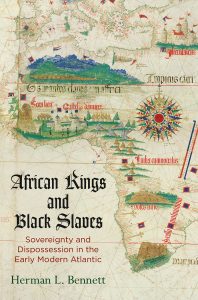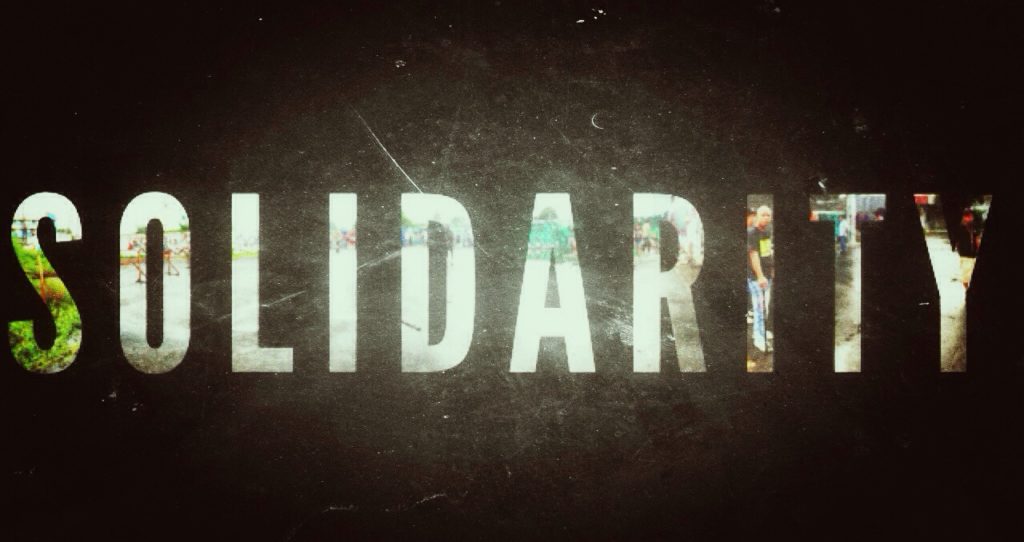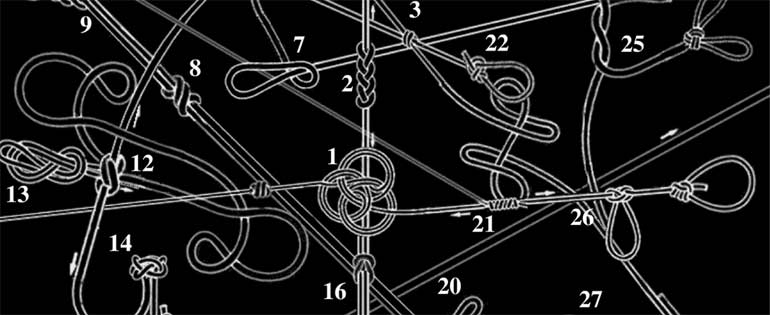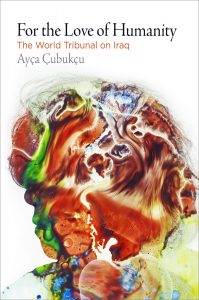Book Discussion: From Fascism to Populism
October 26, 2017
4:30 pm - 6:30 pm
Room C205
Federico Finchelstein (The New School for Social Research), author of From Fascism to Populism, in conversation with Ruth Ben-Ghiat (New York University), Mary Roldán (Hunter College), and Ritchie Savage (Pratt Institute).

Thursday, October 26, 4.30-6.30 pm
Rooms C204/C205
What is fascism and what is populism? What are their connections in history and theory, and how should we address their significant differences? What does it mean when pundits call Donald Trump a fascist, or label as populist politicians who span left and right such as Hugo Chávez, Juan Perón, Rodrigo Duterte, and Marine Le Pen? Federico Finchelstein, one of the leading scholars of fascist and populist ideologies, synthesizes their history in order to answer these questions and offer a thoughtful perspective on how we might apply the concepts today. While they belong to the same history and are often conflated, fascism and populism actually represent distinct political and historical trajectories. Drawing on an expansive history of transnational fascism and postwar populist movements, Finchelstein gives us insightful new ways to think about the state of democracy and political culture on a global scale.
Book Discussion: Cold War Freud
November 13, 2017
4:30 pm - 6:30 pm
Room 9204, The Graduate Center, CUNY
Dagmar Herzog (The Graduate Center), author of Cold War Freud, in conversation with Gary Wilder (The Graduate Center), Judith Surkis (Rutgers University), and Zahid R. Chaudhary (Princeton University).

Monday, November 13, 4.30-6.30pm
Rooms 9204/9205
In Cold War Freud Dagmar Herzog uncovers the astonishing array of concepts of human selfhood which circulated across the globe in the aftermath of World War II. Against the backdrop of Nazism and the Holocaust, the sexual revolution, feminism, gay rights, and anticolonial and antiwar activism, she charts the heated battles which raged over Freud’s legacy. From the postwar US to Europe and Latin America, she reveals how competing theories of desire, anxiety, aggression, guilt, trauma and pleasure emerged and were then transformed to serve both conservative and subversive ends in a fundamental rethinking of the very nature of the human self and its motivations. Her findings shed new light on psychoanalysis’ enduring contribution to the enigma of the relationship between nature and culture, and the ways in which social contexts enter into and shape the innermost recesses of individual psyches.
Fortress Europe? Borders, Bodies, Politics
December 04, 2017
5:30 pm - 7:30 pm
CUNY Graduate Center, Skylight Room
Monday, December 4th, 5.30-7.30 pm
Skylight Room (9100), The Graduate Center
Nicholas de Genova (Independent Scholar, Chicago, most recently Reader in Geography, King’s College London), Sandro Mezzadra (University of Bologna), Françoise Verges (Collège d’Études Mondiales, Paris). Moderated by Gary Wilder (The Graduate Center).
A reception will be held in Room 5109 following the event.

Book Discussion: Sex and Secularism
February 13, 2018
12:00 am
CUNY Graduate Center, Skylight Room
Joan Wallach Scott (Institute for Advanced Study, Princeton; History, the Graduate Center, CUNY), author of Sex and Secularism, in conversation with Nadia Abu El-Haj (Anthropology, Barnard) and Todd Shepard (History, Johns Hopkins)
Tuesday, February 13
4:30pm – 6:30
Skylight Room (9100)

In Sex and Secularism, Joan Wallach Scott challenges one of the central claims of the “clash of civilizations” polemic—the false notion that secularism is a guarantee of gender equality. Drawing on a wealth of scholarship by second-wave feminists and historians of religion, race, and colonialism, Scott shows that the gender equality invoked today as a fundamental and enduring principle was not originally associated with the term “secularism” when it first entered the lexicon in the nineteenth century. In fact, the inequality of the sexes was fundamental to the articulation of the separation of church and state that inaugurated Western modernity. Scott points out that Western nation-states imposed a new order of women’s subordination, assigning them to a feminized familial sphere meant to complement the rational masculine realms of politics and economics. It was not until the question of Islam arose in the late twentieth century that gender equality became a primary feature of the discourse of secularism.
Challenging the assertion that secularism has always been synonymous with equality between the sexes, Sex and Secularism reveals how this idea has been used to justify claims of white, Western, and Christian racial and religious superiority and has served to distract our attention from a persistent set of difficulties related to gender difference—ones shared by Western and non-Western cultures alike.
Political Concepts
March 15, 2018 - March 16, 2018
12:00 am - 7:00 pm
CUNY Graduate Center
The goal of Political Concepts is to serve as a platform for revising, inventing, and experimenting with concepts while exploring the political dimension of their use and dissemination. Participants operate under the assumption that our era urgently needs a revised political lexicon that would help us better understand the world in which we live and act, and that the humanities at large can and should contribute toward such a revision.
This gathering of Political Concepts will be hosted by the CUNY Graduate Center’s Committee on Globalization and Social Change. Since 2010, along parallel lines, this group has spent successive years critically reconsidering and reworking foundational concepts in an effort to more adequately grasp the global political present and to envision alternative political futures.
…..
CONFERENCE SCHEDULE
THURSDAY // SKYLIGHT ROOM (9100)
Opening Remarks > 3:00pm
Susan Buck-Morss & Ann Stoler, political concepts board members
Panel I > 3:30–5:30pm
Chaired by Joan Scott, Institute for Advanced Study
Erotic Transformation/ Drucilla Cornell, Rutgers University
Bios/ Brooke Holmes, Princeton University
Panel II > 6:00–8:00pm
Chaired by Jacques Lezra, UC Riverside
Unmixing/ Sadia Abbas, Rutgers University
Universal History/ Antonio Y. Vázquez-Arroyo, Rutgers University
…..
FRIDAY // ROOM 9205/9206
Opening Remarks > 10:45am
Gary Wilder, Director of the committee on Globalization and Social Change
Panel III > 11:00AM–1:00pm
Chaired by Jay Bernstein, The New School
Lex Animata/ Jesús R. Velasco, Columbia University
Dictatorship/ Andreas Kalyvas, The New School
Panel IV > 2:30–4:30pm
Chaired by Duncan Faherty, The Graduate Center, CUNY
Occult/ Banu Bargu, University of California, Santa Cruz
Decolonization/ Seloua Luste Boulbina, Denis Diderot University
Panel V > 5:00–7:00pm
Chaired by Gary Wilder, The Graduate Center, CUNY
仁“The one” and “the many”/ Lydia Liu, Columbia University
Diaspora/ Ato Quayson, New York University
A live-stream of this event will be available through the Graduate Center website.
Political-Historical Unconscious: CLR James and Frantz Fanon
March 22, 2018
12:00 am
CUNY Graduate Center, Room C198
Thursday, March 22
4:30 pm – 6:30
Room C198
Tracy McNulty (French and Comparative Literature, Cornell)
“Intersubjective Acts: Unconscious Transmission in Freud and James”
Camille Robcis (History, Cornell)
“Frantz Fanon: the Pathologies of Freedom and the Decolonization of the Mind”


Book Launch & Discussion: For the Love of Humanity, by Ayça Çubukçu
November 06, 2018
4:30 am - 6:30 pm
Room 9204, The Graduate Center, CUNY
A book launch and discussion of For the Love of Humanity: The World Tribunal on Iraq (Penn Press: 2018)
Featuring author Ayça Çubukçu (Associate Professor in Human Rights, Co-Director of LSE Human Rights Department of Sociology) with discussants Anthony Alessandrini (English KCC, CUNY) and Vesuki Nesiah (NYU). Moderated by Gary Wilder (Anthropology GC, CUNY).
Tuesday, November 6th
4:30–6:30pm
Room 9204
Reception to follow
On February 15, 2003, millions of people around the world demonstrated against the war that the United States, the United Kingdom, and their allies were planning to wage in Iraq. Despite this being the largest protest in the history of humankind, the war on Iraq began the next month. That year, the World Tribunal on Iraq (WTI) emerged from the global antiwar movement that had mobilized against the invasion and subsequent occupation. Like the earlier tribunal on Vietnam convened by Bertrand Russell and Jean-Paul Sartre, the WTI sought to document—and provide grounds for adjudicating—war crimes committed by the United States, the United Kingdom, and their allied forces during the Iraq war.
For the Love of Humanity builds on two years of transnational fieldwork within the decentralized network of antiwar activists who constituted the WTI in some twenty cities around the world. Ayça Çubukçu illuminates the tribunal up close, both as an ethnographer and a sympathetic participant. In the process, she situates debates among WTI activists—a group encompassing scholars, lawyers, students, translators, writers, teachers, and more—alongside key jurists, theorists, and critics of global democracy.
WTI activists confronted many dilemmas as they conducted their political arguments and actions, often facing interpretations of human rights and international law that, unlike their own, were not grounded in anti-imperialism. Çubukçu approaches this conflict by broadening her lens, incorporating insights into how Amnesty International, Human Rights Watch, and the Iraqi High Tribunal grappled with the realities of Iraq’s occupation. Through critical analysis of the global debate surrounding one of the early twenty-first century’s most significant world events, For the Love of Humanity addresses the challenges of forging global solidarity against imperialism and makes a case for reevaluating the relationships between law and violence, empire and human rights, and cosmopolitan authority and political autonomy.
Book Launch and Discussion: African Kings and Black Slaves by Herman Bennett
November 29, 2018
4:30 pm - 6:30 pm
CUNY Graduate Center, Martin E. Segal Theatre
A discussion of African Kings and Black Slaves: Sovereignty and Dispossession in the Early Modern Atlantic (Penn Press: 2018).
Featuring author Herman Bennett (History, Graduate Center CUNY), with discussants Christopher L. Brown (History, Columbia), Mamadou Diouf (African Studies and History, Columbia) and Sibylle Fischer (Spanish and History, NYU).
Thursday, November 29th
4:30–6:30pm
Martin E. Segal Theater
Reception to follow
This event will be live-streamed: https://gc.cuny.edu/All-GC-Events/GC-Presents/Videos-Streaming
 As early as 1441, and well before other European countries encountered Africa, small Portuguese and Spanish trading vessels were plying the coast of West Africa, where they conducted business with African kingdoms that possessed significant territory and power. In the process, Iberians developed an understanding of Africa’s political landscape in which they recognized specific sovereigns, plotted the extent and nature of their polities, and grouped subjects according to their ruler.
As early as 1441, and well before other European countries encountered Africa, small Portuguese and Spanish trading vessels were plying the coast of West Africa, where they conducted business with African kingdoms that possessed significant territory and power. In the process, Iberians developed an understanding of Africa’s political landscape in which they recognized specific sovereigns, plotted the extent and nature of their polities, and grouped subjects according to their ruler.
In African Kings and Black Slaves, Herman L. Bennett mines the historical archives of Europe and Africa to reinterpret the first century of sustained African-European interaction. These encounters were not simple economic transactions. Rather, according to Bennett, they involved clashing understandings of diplomacy, sovereignty, and politics. Bennett unearths the ways in which Africa’s kings required Iberian traders to participate in elaborate diplomatic rituals, establish treaties, and negotiate trade practices with autonomous territories. And he shows how Iberians based their interpretations of African sovereignty on medieval European political precepts grounded in Roman civil and canon law. In the eyes of Iberians, the extent to which Africa’s polities conformed to these norms played a significant role in determining who was, and who was not, a sovereign people—a judgment that shaped who could legitimately be enslaved.
Through an examination of early modern African-European encounters, African Kings and Black Slaves offers a reappraisal of the dominant depiction of these exchanges as being solely mediated through the slave trade and racial difference. By asking in what manner did Europeans and Africans configure sovereignty, polities, and subject status, Bennett offers a new depiction of the diasporic identities that had implications for slaves’ experiences in the Americas.
International Solidarity in History, Theory, and Practice
February 14, 2019
6:30 pm - 8:30 pm
Graduate Center, CUNY Room 9205
Thursday, February 14th, 6:30–8:30pm
Rooms 9205/9206/9207
Reception to follow
Please join us for a roundtable discussion featuring J. Kēhaulani Kauanui (Wesleyan University), Jasbir Puar (Rutgers University), Radhika Sainath (Palestine Legal), and Robyn Spencer (Lehman College & The Graduate Center). Moderated by Jessica Stites Mor (University of British Columbia).
Please note: this event will not be live-streamed.
Co-sponsored by the Center for Place, Culture, and Politics

This round-table is part of a series of events aimed at launching a network of scholars and activists engaged with the question of international solidarity, organized by Anna Bernard (King’s College London), Jessica Stites Mor (University of British Columbia), and Anthony Alessandrini (CUNY). We are particularly interested in the forgotten and ephemeral connections, sites, and documents of radical left solidarities; movements centered on decolonization, political and social equality, and redistributive justice; south-south as well as north-south solidarities; the techniques and functions of cultural solidarity activism; and our responsibilities as critics and scholars in relation to international solidarity movements. Our goal is to both work towards new understandings of international solidarity and to provide a means to mobilize knowledge between scholars and activists in the field.
If you would like more information on this event, or about the larger project, please contact isarn.info@gmail.com.
Practicing Translation, Translating Politics
April 04, 2019 - April 05, 2019
All Day
CUNY Graduate Center, Skylight Room
Thursday April 4th, 2019 | 4:30 to 6:30pm
Skylight Room
Book discussion of Open to Reason: Muslim Philosophers in Conversation with the Western Tradition (Columbia University Press, 2018), featuring Souleymane Bachir Diagne (Columbia University) in conversation with Susan Buck-Morss (The Graduate Center) and R.A. Judy (University of Pittsburgh). Reception to follow.
Friday, April 5th, 2019 | 10:30am to 6:15pm
Skylight Room
Symposium featuring presentations by Sadia Abbas (Rutgers-Newark), Gavin Arnall (University of Michigan, Ann Arbor), Fadi Bardawil (University of North Carolina, Chapel Hill), Brent Hayes Edwards (Columbia University), Kaiama L. Glover (Barnard College, Columbia University), Ethan Kleinberg (Wesleyan University), and Lydia Liu (Columbia University). Reception to follow.
These events will be live-streamed and recorded.

This symposium will mark the end of an academic year in which the Committee on Globalization and Social Change has engaged the issue of “Translation.” Taking a broad view of the topic, we have treated translation as a practice and process of carrying across, of thinking and acting across various types of boundaries, whether real, reified, or imagined. We are especially interested in the profound challenges, generative possibilities, and unanticipated outcomes that follow attempts to pursue, discover, or fashion connections across singular, incommensurable, and untranslatable domains. At a time when so many planetary predicaments require translocal responses and alternatives, the politics of translation – the peril and promise of carrying across – emerges as an especially timely issue. We hope that this gathering of scholars working in different fields and world areas from various theoretical perspectives will help us to think together about the entwined political, ethical, and aesthetic aspects of translation today.
FRIDAY SCHEDULE:
10:15am: Opening Remarks, Gary Wilder (The Graduate Center)
10:30–12pm: Session I
Sadia Abbas, “Form, Taxonomy, “Transcreation”
Ethan Kleinberg, “Hebrew into Greek: Emmanuel Levinas’s Talmudic Lectures as the Promise and Peril of Translation”
Moderated by Susan Buck-Morss (The Graduate Center)
12:15–1:45pm: Session II
Gavin Arnall, “Marxism as Translation”
Fadi Bardawil, “Re-Thinking the Arabization of Marxism”
Moderated by Anthony Alessandrini (The Graduate Center)
3–4:30pm | Session III
Kaiama L. Glover, “Blackness’ in French: On Translation, Haiti, and the Matter of Race”
Brent Hayes Edwards, “Diasporic Literature and the Task of the Black Translator”
Moderated by Duncan Faherty (The Graduate Center)
4:45–5:30: Session IV
Lydia Liu, “Inaugurating Translations”
Moderated by David Joselit (The Graduate Center)
5:30–6:30pm: Closing Roundtable Discussion













